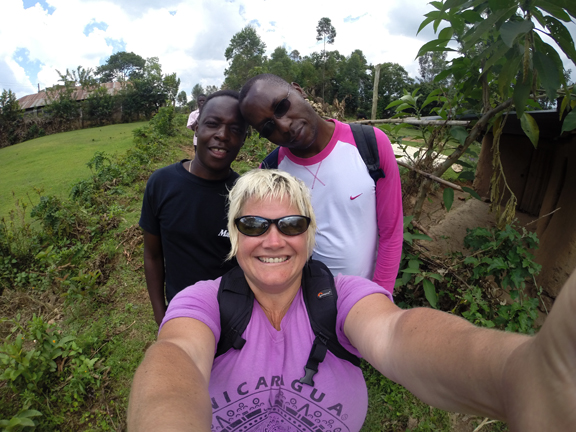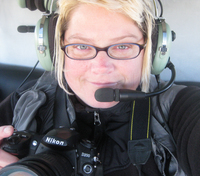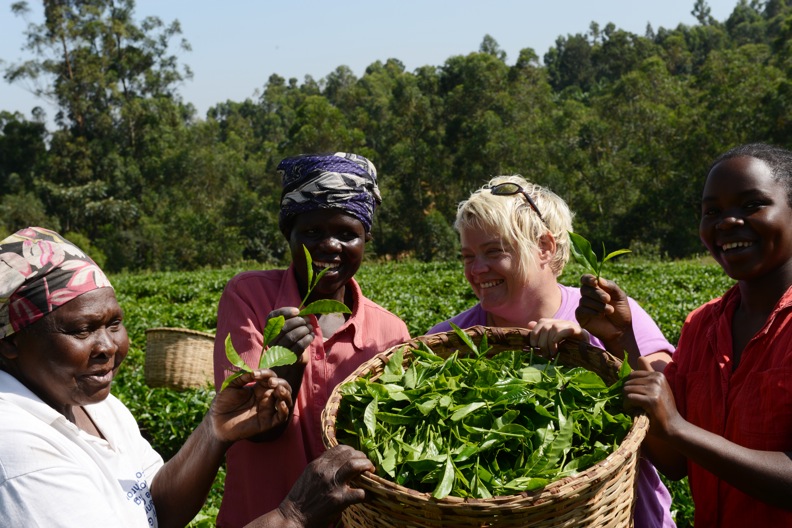
I may be gone from Mahanga village, but it will always be with me.
Hardley and Lydiah's family were so welcoming and really made me feel like a part of theirs.
When you are somewhere new, and discovering, your own backyard is a vacation, a tour, a fascinating place all over again -- something we take for granted when we're cooking, showering, driving to work, doing all our own everyday things, just as we've always known them.
Here's a little look at life in Mahanga, right in my own house. I often overlook what becomes everyday, and when I take a step back, it is a lesson in what becomes everyday. Its all just surface. And, it often is what makes a trip or experience ... the small moments.
Lydiah and Hardley live in a house they built ... permanent house it is called. Typical construction with bricks and the like. Their first home, when they were first married, they made together with mud. A traditional house. It's the tan, smaller home in the photos you can see, often behind the grazing cow! After circumcision, Tiriki men must build their own home on the compound. Traditinoally, after the event, they would go to the forest for a month to heal and to learn important skills and cultural mores of being a Tiriki man.
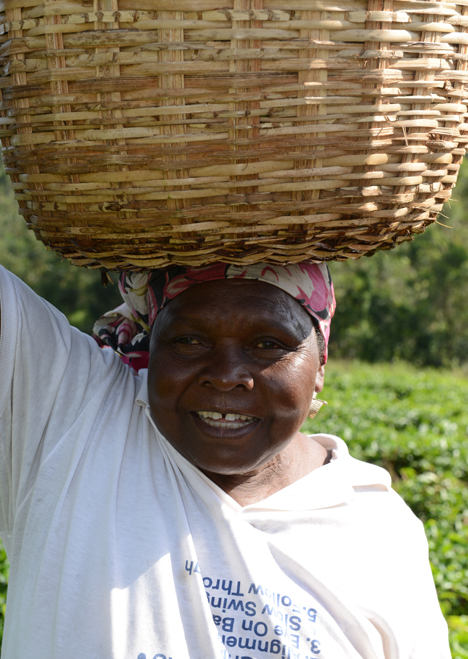
It is typical that your inlaws live in the same compound, but in a different house. Rose and Joash Jivetti are in a n attached house. Joash was a teacher in 20 plus schools in the area, for many decades.
They have a small tea plantation behind the house, where they also grow maize and other vegetalbes we eat for dinner such as kale (sukuma wiki) and this bitter green "slippery" veggie I tried to like but just cannot ... Murerle.
Rose cooks over a traditional fire. Lydiah uses burners on a modern stove, and a microwave. The old and the new in one single compound.
Lydiah tells me that Rose did not want to switch to a fire stove design that uses less wood ... until one day Lydiah just installed it in the kitchen. Funny. Rose was mad but still likes it. Such is the world over.
Lydiah has a woman who helps her with chores and cooking - Abby. Abby was always smiling and helped with all sorts of things, from doing laundry (always by hand, like Nicaragua) and also she cleaned the stalls for the cows every day.
Abby
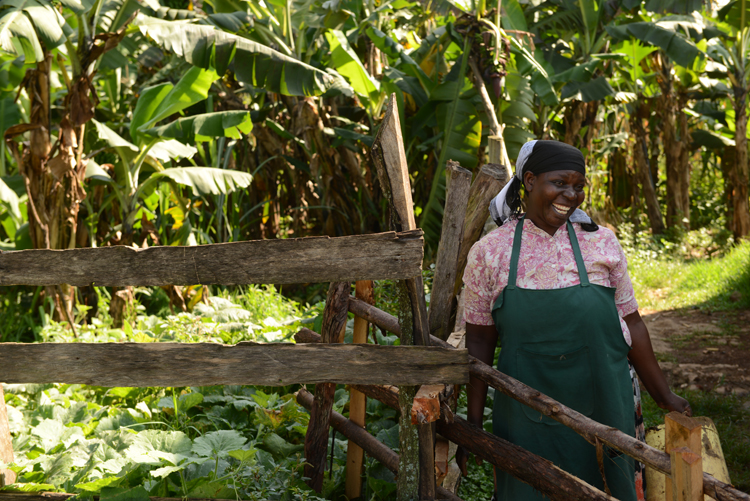
Due to thefts, the family moves their three cows into a stall next to the house each night. It was going to be used for other things, like storage, but it's mmore necesary now for security. Every morning, Abby collects the dung and they spread it as fertilizer in the crops.
It makes for a strange smell, sort of like the odor on urine when you eat asparagus (delicately referred to me as "asparagus pee") as it mixes with everyday odors near the kitchen and bathroom.
the stalls
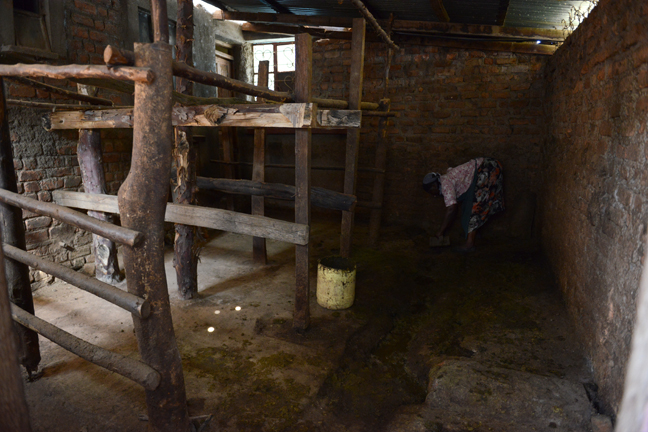
We take bucket showers ... there's a clear spot of tile next to the toilet. It sounds weird but you get used to it in about 30 seconds. I like bucket showers.
My room at first is a small single bed with a mosquito net and a table that Lydiah makes me move when Michael leaves behind a larger one. There is a desk there and a cupboard. African families have a lot of photos of family up - all formal ones it seems. They have enough furniture for 3 living rooms ... but unlike us, there's often visitors and many of them, so it makes sense. I like that!
People are coming and going and there's usually 8 of us eating dinner and it's not a party. For a person who only works in seclusion and often wants "down time" I really like the allfamily culture here.
dinnertime
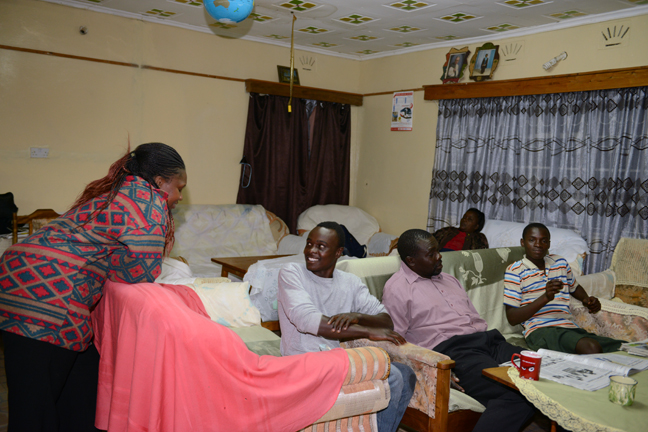
It is fun. I sit around and eat sukuma wiki with ugali and we comment on the news and weird stories we see, or the Lamu land scandal, or what happened to the guy who was dating the dancer in the Nigerian soap opera?
Chickens outside give us eggs. Sometimes they kill chickens for dinner. Chicken is the favorit meat and the most expensive. Beef is not, which is surprising to me ... seems like it would be more expensive.
At night, we all sit around and upload photos for the day and share them and ... I feel like I have a family here.
:-)
Moses, Alulu and Hardley. The view from my Mac.
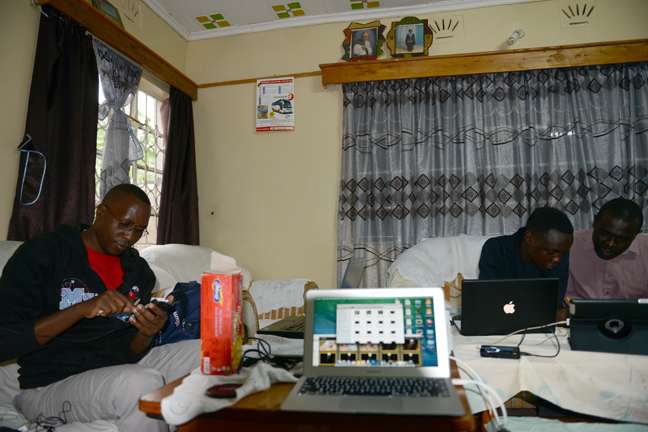
Drying corn from the field. It will be used to mill to make maize flour for ugali.
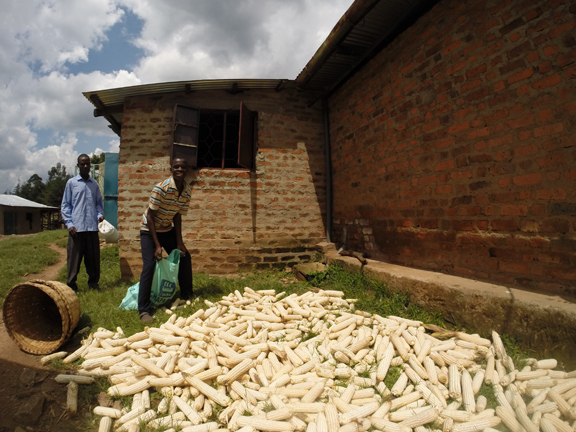
Lydiah and others walking from the path to Makuche, where the hospital their brother-in-law is building is, and the gold mining. Love this view

Me and the Kitty, who I named Tsinguche Mundo. Cuz, she's multicultural!
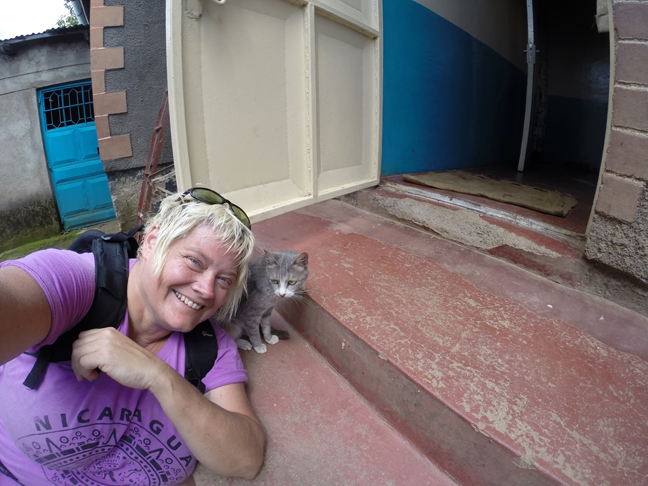
Moses, Alulu and I walking back from a day of photographing and interiewing, and translating from Tiriki
